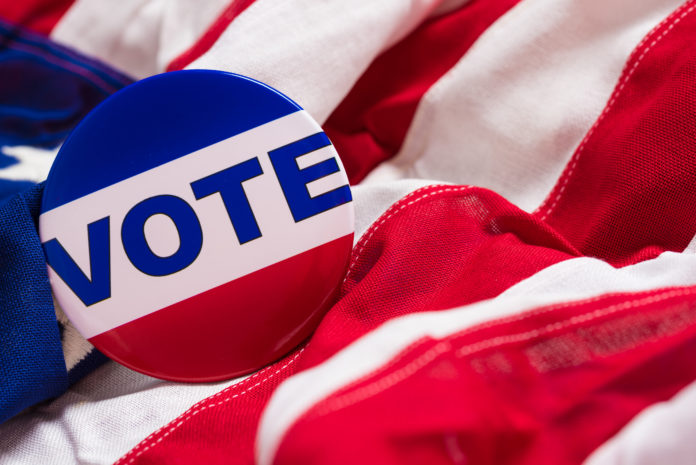The Kansas House on Thursday passed a bill requiring Kansas students to pass an American civics test to graduate from high school.
The bill, which had a difficult time getting out of committee, passed the House on a 69-54 vote despite concerns that the Legislature was encroaching on the state Board of Education’s constitutional turf. The bill now goes to the Senate.
The bill, backed by Republican state Rep. Steve Huebert, requires students enrolled in an accredited public, private, or parochial high school to pass a civics test as part of the required course of instruction for graduation.
The tests would made be up of 60 questions selected from the naturalization test administered by the U.S. Citizenship and Immigration Services, questions that Huebert conceded weren’t very difficult.
“This is what I call mom and apple pie,” Huebert said.
Opponents of the legislation said the bill was well-intentioned but moved into an area overseen by the Kansas State Board of Education and its constitutional responsibility to generally supervise the school system.
“I think it’s a tremendous overreach by the Legislature to think that they should get involved in curriculum development and insert their views on curriculum development and programs into our schools,” said Democratic state Rep. Jerry Stogsdill of Prairie Village.
“That is not a slippery slope. That is a frozen ski jump,” he said. “This not our purview. This is the purview of the Kansas State Board of Education and our local boards of education. I think we ought to repect that.”
Stogsdill predicted that passing the bill would open the door for other legislators to introduce bills on various topics they think should be emphasized in school.
Huebert said the proposed civics test would foster a basic understanding of American government similar to how students need to understand basic math such as multiplication tables so they can advance to more complex coursework.
“We need to step up and start doing what’s necessary so that our kids need to learn what they need to learn,” Huebert said.
The lawmaker recalled “Schoolhouse Rock!,” the 1970s-era series of animated short films that put lessons about government into catchy tunes.
“That was an attempt in the ’70s to recognize that we needed to do better,” Huebert said.
“I can tell now that there’s still a need to do better,” he said.
“This can be done very simply in a nonmicromanaging way that will help all of our kids do better on what they learn so it will prepare them to be better citizens when they graduate,” he said.
The bill was opposed by the grass roots group, Game on for Kansas Schools, which advocates for public education.
“Proponents said kids need to know civics and they can take the test as many times as needed to pass,” the group said.
“However, Kansas students already take government and U.S. history, and standards and curriculum are the responsibility of the State Board of Education and local school boards, not the Kansas legislature.
“This bill is not the worst bill we’ve faced, but it fits a trend we are seeing this session of the legislature usurping the role of those other bodies.
Meanwhile, the bill had the support of Kansas Attorney General Derek Schmidt who pushed for a similar proposal six years ago.
“It’s not just a school management issue. It’s not just an education or a public education issue. It is being an American-citizen issue. It’s a fabric-of-the-society issue,” Schmidt told the House Education Committee last month.
“It’s how we govern ourselves in a very diverse setting where people have remarkably different ideas and we all have to agree to play by the same rules if we want to get along,” the attorney general said.
“There are some sort of common basics that we all have to agree to in order to live together in this great country and this is as good a starting point as any,” he said.
















